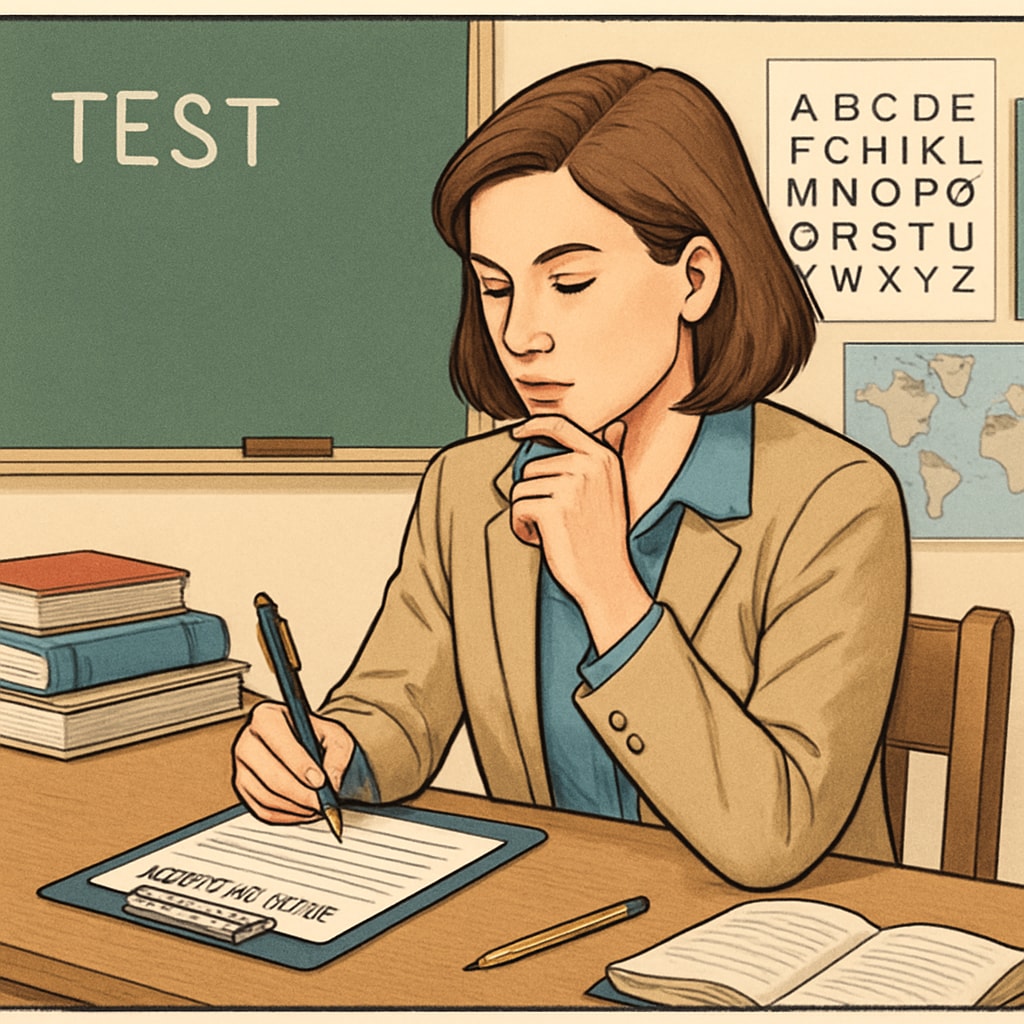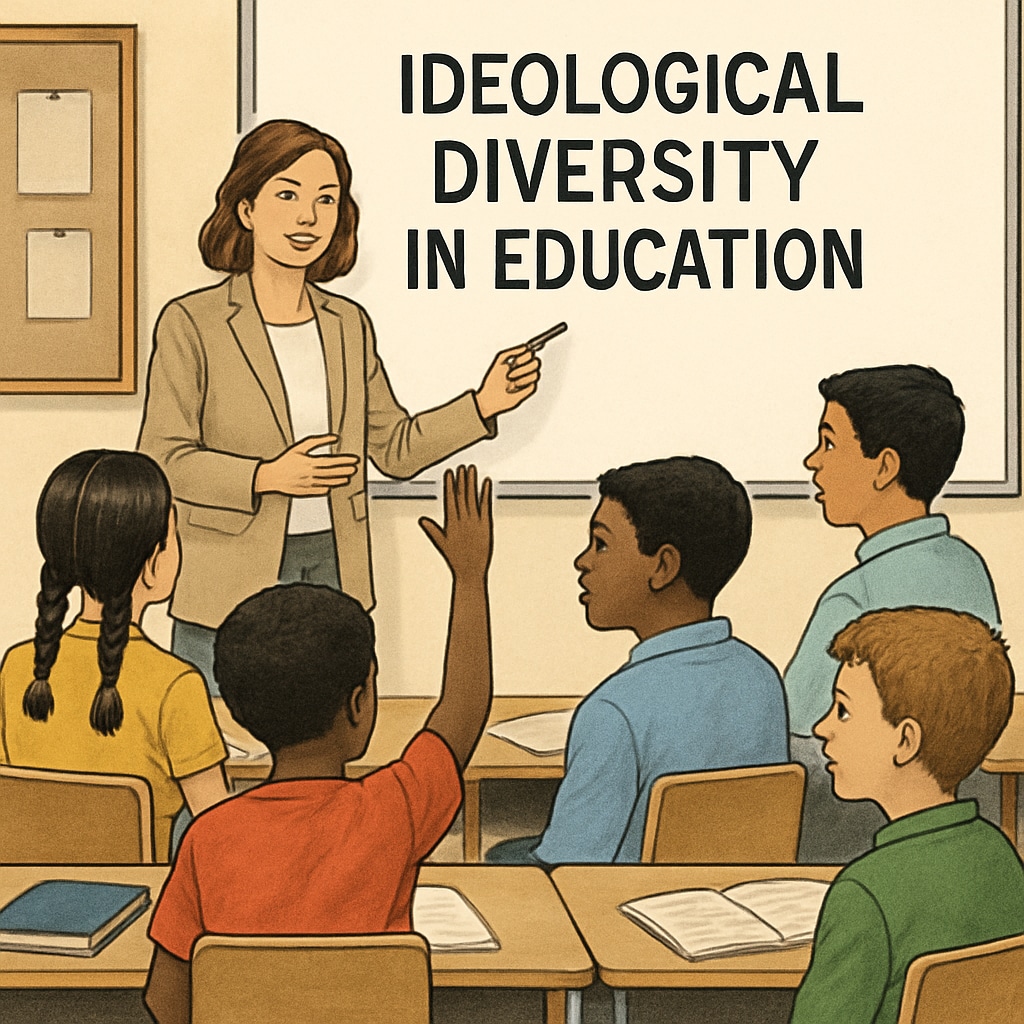The decision by Oklahoma to implement a political bias test for out-of-state teachers has ignited a national conversation about the role of politics in education. This controversial policy, which ostensibly evaluates applicants’ political beliefs and ideological leanings, has raised questions about education freedom, fairness in hiring practices, and the potential for political interference in the classroom. As debates intensify, this move by Oklahoma highlights a deeper tension in the U.S. education system: How should the balance between personal beliefs and professional responsibilities be maintained?
Understanding the Political Bias Test
The political bias test is reportedly part of a broader initiative aimed at ensuring that teachers align with the state’s educational values, which some interpret as politically conservative. Applicants from other states are required to answer questions that probe their stance on contentious political and social issues. Critics argue that this process is subjective and potentially discriminatory, as it could disqualify qualified educators based on their personal beliefs rather than their teaching abilities.
Proponents of the measure claim it is necessary to protect students from what they perceive as ideological indoctrination. They argue that the test safeguards a politically neutral environment in schools, ensuring that educators do not impose their personal views on students. However, opponents counter that this policy undermines teachers’ autonomy and stifles diversity of thought in education.

Impacts on the Education System
The implementation of such a test has significant implications for the education system. Firstly, it may deter highly qualified teachers from applying to Oklahoma schools, exacerbating teacher shortages that many states are already grappling with. In addition, it could create a chilling effect, where educators feel pressured to suppress their personal beliefs, even in non-political contexts.
On a broader scale, the policy sets a precedent for other states, which could lead to similar measures being adopted nationwide. This raises concerns about the potential for increased politicization of education, as states could tailor their hiring practices to favor specific ideologies. Critics warn that this could erode the foundational principle of public education as a space for diverse perspectives and critical thinking.
For example, a study by the Encyclopedia Britannica highlights the importance of maintaining ideological diversity in classrooms, arguing that exposure to different viewpoints fosters critical thinking skills and prepares students for civic engagement. The introduction of political bias tests, however, could undermine this goal by creating a homogenous educational environment.

Public Reaction and Legal Challenges
Public reaction to the policy has been mixed, with strong opinions on both sides of the debate. Advocacy groups and educators’ unions have criticized the test, describing it as an infringement on personal freedoms and a violation of anti-discrimination laws. Some organizations are preparing to challenge the policy in court, arguing that it violates the First Amendment by penalizing teachers for their personal beliefs.
Meanwhile, supporters of the test have rallied behind the state government, claiming that this move is necessary to combat what they perceive as increasing political bias in classrooms. This polarized response underscores the broader cultural and political divisions in the United States, where debates over education often serve as a proxy for larger ideological conflicts.
The Broader Implications for Education Freedom
At its core, the controversy surrounding Oklahoma’s political bias test raises fundamental questions about the role of education in society. Should schools serve as neutral spaces that prioritize academic inquiry, or should they reflect the prevailing values of the communities they serve? How can states balance these competing priorities without sacrificing the quality and inclusivity of education?
As this debate unfolds, it is essential to recognize the potential long-term consequences of politicizing education. Policies like Oklahoma’s risk narrowing the range of perspectives available to students, which could hinder their ability to think critically and engage with complex issues. Furthermore, these measures may discourage talented educators from pursuing careers in teaching, ultimately harming the quality of education nationwide.
For additional context, the Wikipedia entry on academic freedom provides valuable insights into the importance of protecting educators’ rights to teach and express diverse viewpoints without fear of reprisal. Upholding these principles is crucial to maintaining the integrity of public education and fostering a society that values open dialogue and intellectual growth.
In conclusion, Oklahoma’s political bias test for teachers has placed the state at the center of a contentious debate over education freedom and political interference. While its supporters argue that the policy protects students from ideological bias, its critics warn of the dangers of suppressing diversity of thought and undermining the core values of the American education system. As this issue continues to evolve, it will undoubtedly serve as a bellwether for broader discussions about the future of education in the United States.
Readability guidance: This article uses short paragraphs, clear transitions, and accessible language to ensure readability. The content is structured to balance depth with clarity, making it suitable for a broad audience.


